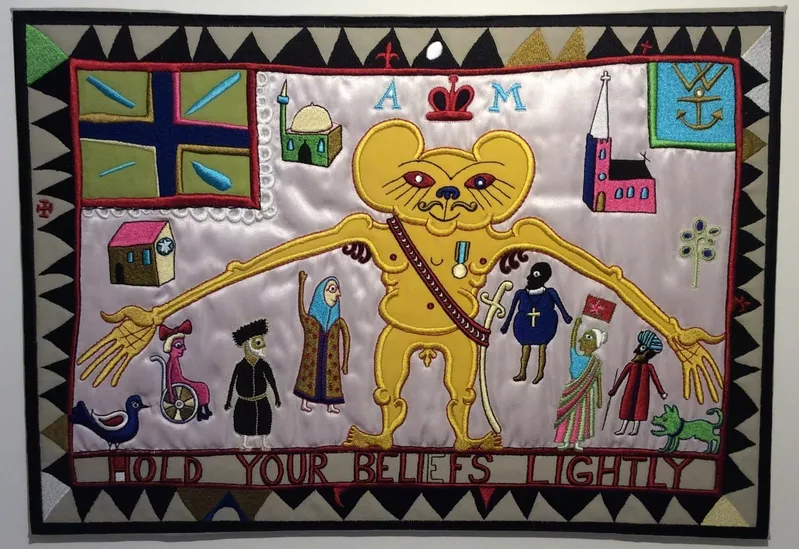First, get an idol
This is the easy part: you just need to care about something, then find the person on the planet who does that thing in a way you really, really like. I’ve had a few in my time — Ian Wright, Akira Kurosawa, Arsène Wenger, David Bowie. All were truly great at their main skill, so it was easy to combine the person with the ability and admire both at the same time.
Next you should acknowledge their flaws and limitations
This might take a while because your idolatry can blind you to their shortcomings, but if you spend long enough worshiping someone, you’re bound to see them slip up eventually. With enough of those slips their idol status will begin to diminish. For example, Arsenal’s performances under Arsène Wenger became increasingly turgid, then he wrote a really disappointing memoir, which just added to the overall sense of him as a fallible person.
Don’t forget to question their ideas and beliefs
As you get older and wiser, you understand society in a more complete way. That’s why you might have a problem with Van Morrison’s domestic violence or Eric Clapton’s racism. A famous piece of 1970s graffiti read ‘Clapton is God’, but would God complain that ‘foreigners’ should leave Great Britain?

Can you really love art when it comes from an unpleasant place? Maybe, but it might well take the shine off it, leaving the hero slightly less heroic. Challenge people you admire by seeking different perspectives and forming your own opinions.
Inevitably you will look for inspiration elsewhere
As you grow as a person, the things you used to value may start to seem insignificant or silly. Beyond that, you might meet someone who helps to change your tastes, undermining your worship of N’Sync as you discover the joys of Jimi Hendrix. Even if you still admire your idols, other forms of greatness will test your devotion by recontextualising what you thought was the last word in some ability. I still love the work of Akira Kurosawa, but he’s made a few crappy films, unlike, say, Stanley Kubrick.
Learn more about what they do
This can go both ways: immersing yourself in a subject can renew or strengthen your appreciation of someone; but it can also make you realise that they’re not quite as good as you thought they were. I used to have a lot of idols in the world of advertising, but as I met them I understood that much of their excellence came from collaboration with other people, somewhat diluting my opinion of their abilities.
Having said all that, the killing of idols is rarely a conscious process. You don’t wake up one day and say, ‘I’m going to start being disappointed in David Bowie’. It tends to be a steady drip of all of the above, but by the time it’s happened, you wonder why you once thought so highly of John Grisham or Snoop Dogg.

Then again, maybe you should have a regular clearout. Another idol of mine, Grayson Perry, once wove a tapestry that said ‘Hold your beliefs lightly’. I’ve remembered that ever since, because it helps me to understand that we should always keep an open mind, reassessing our opinions whenever new evidence becomes available.
The last point is to consider becoming your own idol
You know all the things that you consider to be great, so why not aim to produce that greatness yourself? At the very least it’ll give you a greater appreciation of what makes someone worthy of being an idol to someone else. But it will also give you the kind of purpose that transcends the appreciation of others, leaving you to make a bigger contribution to people you’ve never even met.
Featured image: ‘Hold your beliefs lightly’ by Grayson Perry
































